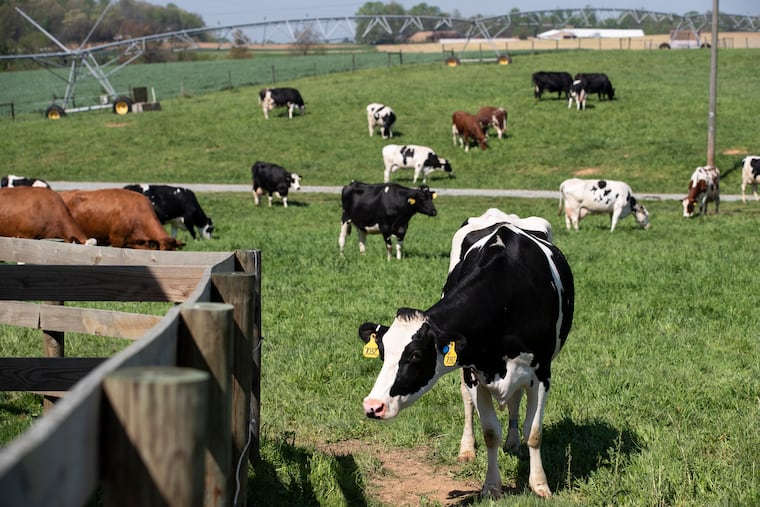Federal ban could pull chocolate milk from Pennsylvania schools
The USDA says the nationwide proposal to limit flavored milk to only high school students could cut back on childhood obesity. Dairy farmers are not happy.

Chocolate milk, a cafeteria staple once championed as nature’s sports drink, could be booted from elementary and middle schools across the country.
The U.S. Department of Agriculture, in an effort to fight childhood obesity, recently proposed allowing “flavored milk” for high school students only, to “reduce exposure to added sugars and promote the more nutrient-dense choice of unflavored milk for young children when their tastes are being formed.“
The Philadelphia school district, which serves low-fat chocolate milk and plain low-fat milk in all schools, declined to comment on the USDA proposal. The state’s department of education said students should have a variety of milk options, “flavored or unflavored.”
“Milk is important for children’s development, and allowing flavored milk helps increase consumption,” a spokesman said in an email to The Inquirer.
In Pennsylvania, home to approximately 5,000 dairy operations, farmers say the proposal is just another knock on the milk business. Dairy farmers have long lamented the push for less fat in milks, along with the onslaught of alternatives made with almonds and oats.
“Yes, our nation’s bureaucrats, under the premise that a small daily serving of milk served in schools is creating childhood obesity, are teeing up to remove flavored milk as an option in school cafeterias. All milk, flavored or not, is a proven powerhouse for our children’s minds, bodies, and growth, especially for healthy development,” said Dave Smith, executive director of the PA Dairymen’s Association.
One USDA proposal, which wouldn’t go into effect until the 2025-26 school year, would limit K-5 students to a variety of unflavored milk.
Smith, of the Dairymen’s Association, said school districts are major supplier of meals for children facing food insecurity and that chocolate milk has long been a trusted way to introduce milk to picky eaters.
“Surely, the federal government and the USDA can find more important and meaningful issues to focus on than taking away an 8 oz. per-day serving of flavored milk from our children,” he said.
Hundreds of dairy farms in Pennsylvania have shuttered in recent years, particularly during the height of the COVID-19 pandemic when schools closed and kids couldn’t drink any milk, flavored or not.